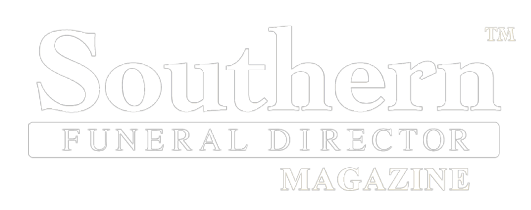(404) 312-6640
Overcoming the Funeral Home Recruitment and Retention Challenge
In 2021 Connecting Directors put out a survey for funeral professionals to gather data on the wants, needs, concerns, and habits of deathcare workers. In that survey, “Employee Recruitment and Retention” was ranked highest among a list of challenges faced by funeral professionals today.
With a high rate of burnout for funeral professionals, and the deep emotional investment required of the profession, it’s no surprise that recruitment and retention feels like a huge challenge in the deathcare space. However, this profession can also be extremely rewarding, and it turns out that finding and keeping solid employees doesn’t have to be the hardest part of a funeral director’s job. Prioritizing mental health support for employees, rethinking benefits packages and company culture, and re-framing how we recruit new talent from mortuary school programs can help funeral home owners and managers recruit and retain excellent, high-performing deathcare employees.
Make Your Benefits Competitive
America is facing a worker shortage and employment revolution across many professions today, and deathcare is no exception. In fact, a recent article from Business Insider quotes lack of living wage paying jobs, sluggish increases in pay, lack of support for caregiving duties and childcare issues, lack of flexibility, lack of healthcare, and mental health/burnout on a long list of contributions to the current employment problem. Add on the erratic hours, emotional burdens, and high-pressure demands of jobs in the funeral profession, and it’s no wonder that many funeral business owners are struggling with employee recruitment retention in today’s job landscape. Funeral business owners can observe these employment patterns and find opportunities to update outdated and stale benefits packages, parental/sick/vacation leave policies, and salary standards in order to attract and keep quality employees in today’s professional world. According to an article from the Society for Human Resource Management (or SHRM), “A tighter job market requires that an organization present itself as an employer of choice, a situation that is leading HR to offer benefit options that appeal to a wide range of employee demographics, the ‘2016 Strategic Benefits— Leveraging Benefits to Retain and Recruit Employees’ report found. [...] About three-fifths of respondents indicated that benefits for professional and career development, flexible work, health care, and retirement savings and planning will increase in importance to retain employees in the next three to five years. More than one-half expect that wellness and preventive health benefits will increase in importance to retain employees over the same period.”
A good modern benefits package will offer comprehensive healthcare, retirement and financial benefits, opportunities for flexible work schedules, and ample paid time off including parental leave. It’s well known and documented by institutions like the Pew Research Center that the United States is basically the only industrialized nation that does not mandate required parental leave, even though there are clear benefits for both the parents and the businesses that employ them. According to the Center on Budget and Policy Priorities, “The benefits of paid leave are well established. Providing new parents with paid time off to care for newborn or recently adopted children contributes to healthy development, improves maternal health, and enhances families’ economic security. Paid medical and caregiving leave lets workers care for themselves and loved ones when ill or injured, and reduces financial insecurity and stress during those times. Paid leave benefits businesses by improving retention and productivity and boosting labor force participation.”
Additionally, one of the newer ideas in expanding benefits packages is implementing a wellness plan into your business strategy. Wellness plans not only go a long way in attracting and retaining top talent, but can also save your business on healthcare costs and unexpected absences. The same article from the Society for Human Resource Management claims that almost onehalf of HR professionals in the aforementioned report said that wellness initiatives decreased their health care costs, about two-fifths said that wellness initiatives Overcoming the Funeral Home Recruitment and Retention Challenge by
Aries Jo Director of Outreach and Education at Parting Stone w February 2022 25 decreased unplanned absences, and about one-third said wellness initiatives increased work productivity. Wellness initiatives in funeral businesses could include partnering with local gyms to get free memberships for employees, programs that incentivize healthy habits, stress management programs, and support for mental health and a healthy work-life balance.
Create a Safe Space for Mental Health Support
In deathcare specifically, mental health is a major factor in burnout and contributes to many employees leaving the profession. If a workplace doesn’t prioritize and actively communicate support for the mental health of its employees, those workers could feel like they have to shoulder the burdens of compassion fatigue, heavy emotional investment, and burnout alone, which contributes to the deathcare profession’s high employee turnover rate.
On the Deathcare Decoded Podcast, episode titled A Path to Normalizing Mental Health in Deathcare, Jody Herrington, Location manager at Skylawn Memorial Park in Oakland, CA explains why creating an open dialogue around mental health support is vital in funeral . . . Your Choice for when it Matters Most Since 1941 Style 200 Personalized shown Cherokee business. She explains, “This is such a high intensity job, oftentimes it feels like there is no way to decompress, so that’s a big issue with funeral directors. You have all of this grief and trauma, but no decompression from it, because you’re always on, you’re available 24 hours a day, 7 days a week, 365 days a year[...] Having outlets and being ok to say ‘I need to just take a moment’ is so very important, but it takes a lot of trust […] and that’s not something that develops overnight, that’s something you have to foster and nurture [in the workplace]. Taboo subjects [like death] that we are already dealing with certainly don’t help the situation, but there are ways that building the trust within the team can help alleviate the burden from some of those going through the more heightened emotional aspects [of this job].”
Cultivating a safe space for employees to voice mental health needs and concerns starts at the very top with established company policies about prioritizing mental health, offering resources and programs to struggling employees, and never penalizing or stigmatizing employees for talking about mental health hardship or asking for help. Healthcare benefit policies should include and cover mental healthcare like therapists and professionals, and schedules should be flexible to reasonably accommodate employees’ needs in seeking mental health support.
Furthermore, when it comes to mental health support in your business, being open to safe dialogue around mental health and offering opportunities for mental health support could also be a key factor in recruiting young talent specifically. Millennial (ages 25-40) and gen-z (ages 18-24) employees are statistically more likely to leave a job for lack of mental health support, according to an article from Time, which outlines that “half of millennials—and 75% of Gen Z-ers, who in 2020 are ages 23 and under—said they had voluntarily or involuntarily left a job in part because of mental-health reasons, according to a 2019 survey of 1,500 U.S. workers by Mind Share Partners, a nonprofit that provides mental-health training for corporations.”
Re-Frame How Your Business Recruits
Recent Mort Grads Tanya Scotece, Professor of Funeral Service Education at Miami Dade College and licensed Funeral Director, has first-hand knowledge of exactly who is graduating from mortuary science programs today, what those graduates are looking for, and how funeral businesses can make finding the best new employees easy.
First of all, Tanya recommends that funeral homes make it easier for current mort students to complete observations and volunteer hours required for graduation. These in-school degree requirements can be opportunities for connecting with the top-talent from mortuary schools in your area, and if it isn’t easy to contact, communicate with, and work with your funeral home, the best and brightest will look elsewhere. On the Deathcare Decoded podcast, Tanya explains, “Some of the classes that we have require students to do observations [...] I would like to see more [..] local funeral homes have a system in place where the students can just go sign a form for confidentiality and have observation opportunities ready to go. As opposed to the students having to seek out an observation position and it’s almost like going through an HR process when maybe they just need to get those 5 observations done.” Streamlining these opportunities will also save your current employees time and energy, which will make working with current mortuary students less of a pain.
Tanya also suggests offering incentive programs for current employees tasked with guiding mortuary students through observation programs, like a small cash bonus or extra vacation day. There is a chance that your current employees could feel threatened by new talent, so openly communicating their value at your company, while involving them directly in the recruitment process and incentivising them to participate is a wise strategy. Tanya explains, “for the seasoned funeral directors, I’d like to see funeral home owners and managers show more of an appreciation for their existing directors, [so they don’t] feel threatened by the incoming ones. People are always afraid that this new person is going to ‘take my job’ so value and appreciation for current employees would go a long way. I see and I hear in my classes that students have friction with seasoned directors, as new employees trying to make a home in the funeral world.”
Additionally, adjusting internal company culture to reflect a modern world could help recruit and retain younger mortuary school grads. Like many other professions that have relaxed dress code standards in the past few years, Funeral Directors should expect the aesthetics of new generations to evolve. According to an article from BBC which explains data from a recent survey of professionals across industries, “of those surveyed, 61% said the dress code had no positive impact on their productivity, while 45% said they’d be more productive wearing what they felt most comfortable in.” On the other side of the desk, millennial consumers probably do not expect or desire a formal funeral home experience. More research shows that millennial professionals are less likely to want a job that requires formal dress. According to one 2018 survey on Medium.com of 2000 adults, 61% of workers across ages and professions did not see an upside to strict work dress codes. Furthermore, that survey revealed that “the unhappiness with dress codes was strongest with millennials, the demographic group most likely to consider leaving a job over an office dress code.”
Building Company Culture for a Brighter Future in Deathcare The funeral profession at large can adapt to the modern world in order to attract and retain quality employees for the future. Comprehensive benefits including flexibility, paid leave, healthcare, and retirement, mental health safety and support, and understanding the next generation of employees will go a long way towards Southern Funeral Director Magazine w February 2022 27 helping retain talented employees, as well as keeping all of your current employees supported and engaged. All of these markers point to building and maintaining a strong, uplifting company culture within your funeral business. It’s clear that the day to day functions of your business matter, both when it comes to finding new talent, and incentivizing current employees to stick around. Putting the work in and going the extra mile to make employees feel supported and valued, especially in a demanding field like deathcare, will help set your company apart in an already competitive market.
Author Bio:
Aries Jo is the Director of Outreach and Education at Parting Stone, where she creates forward thinking content for funeral professionals. Aries is passionately death curious, and hosts the Deathcare Decoded podcast. Learn more about Parting Stone and their complete alternative to cremated remains by visiting their website, partingstone.com






Comments